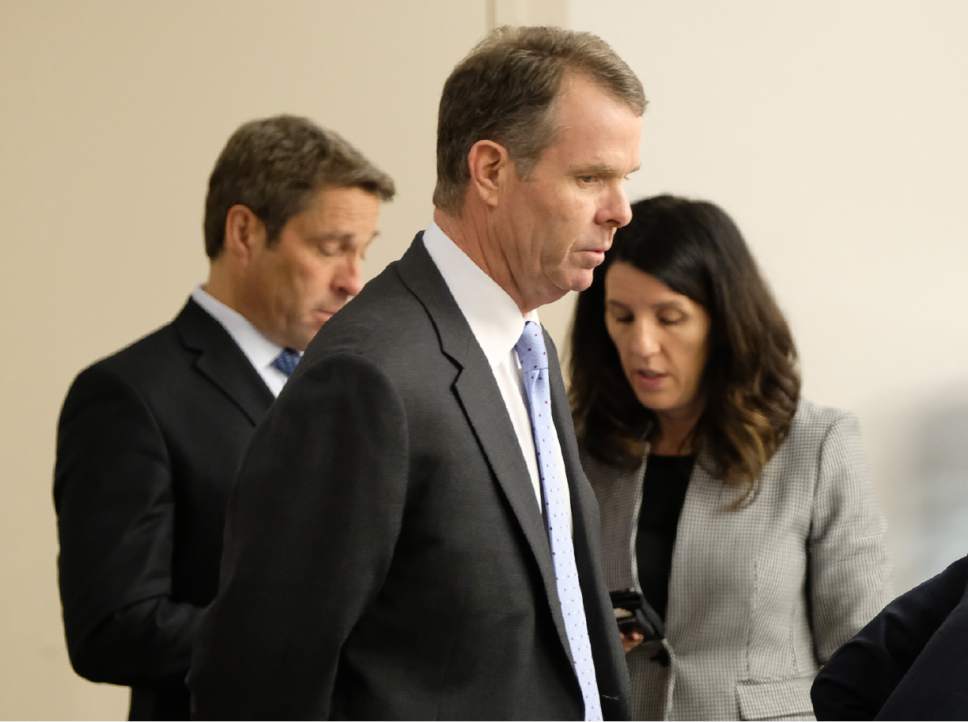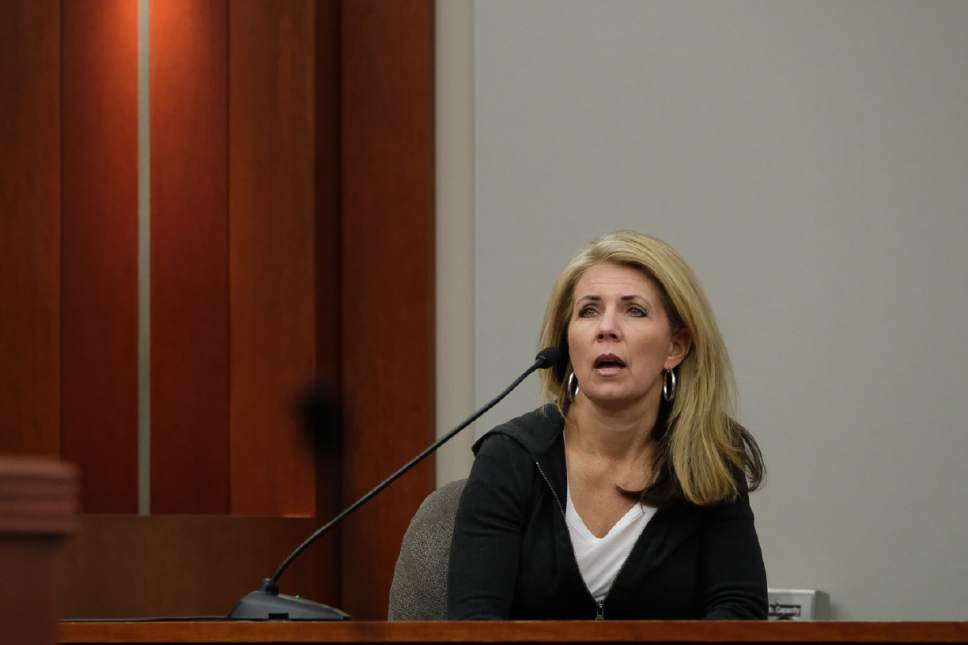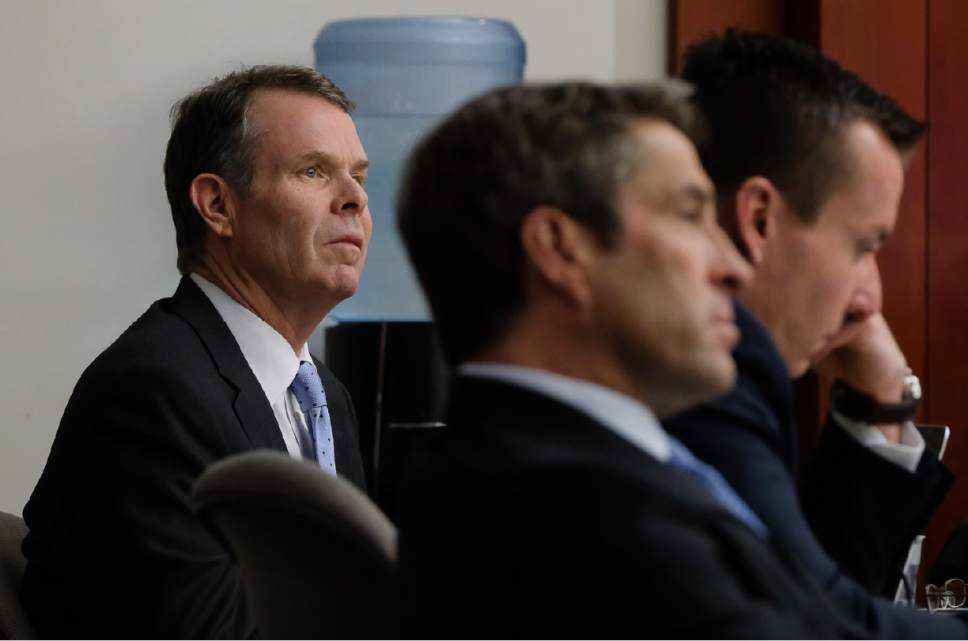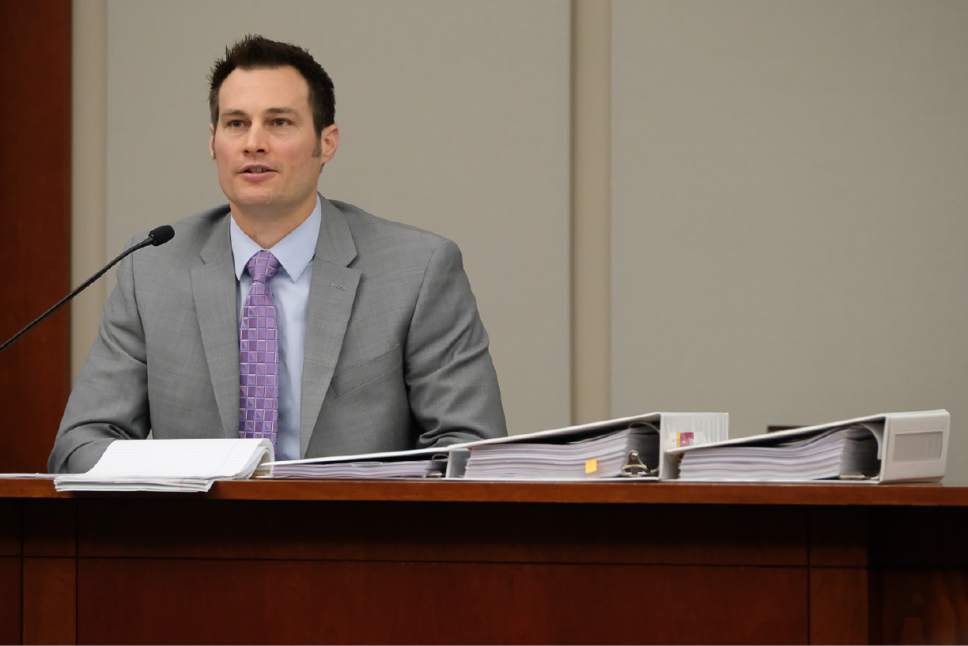This is an archived article that was published on sltrib.com in 2017, and information in the article may be outdated. It is provided only for personal research purposes and may not be reprinted.
An FBI agent was back on the stand Thursday to face cross-examination from former Utah Attorney General John Swallow's defense team.
Special Agent Jon Isakson caused a stir Wednesday, when he told a 3rd District Court jury that the U.S. Department of Justice's Public Integrity Section had declined to bring charges against Swallow and his immediate predecessor, Mark Shurtleff, in 2013 at the request of the local FBI office.
It was testimony barred by a court order and also new information, defense attorneys said.
In the past, the FBI and Justice Department officials had refused to provide local prosecutors with information about their reasons for not bringing charges.
Salt Lake County prosecutors had asked the court to block testimony that the DOJ had declined charges, insisting it wasn't relevant to the case.
Swallow has pleaded not guilty to 13 felony and misdemeanor charges, stemming from allegations of fostering a pay-to-play climate inside the attorney general's office.
The latest from Day 11 of the trial:
2:15 p.m.
Jurors were sent home and told to return Tuesday morning, when the defense plans to call their last witnesses.
The defense then planned to ask 3rd District Judge Elizabeth Hruby-Mills for a directed verdict: a finding that the case should be dismissed because prosecutors have not proven their case.
—
2:10 p.m.
The three counts dismissed by the prosecution include the following allegations:
• Count 5: Receiving or soliciting a bribe, a second-degree felony.
With St. George businessman Jeremy Johnson looking for assistance with a federal investigation of his company, Swallow helped arrange a meeting between Johnson and now-deceased Provo payday-loan magnate Richard Rawle, who Swallow said had access to a person close to then-Sen. Harry Reid, D-Nev. Johnson paid Rawle $250,000 as part of the deal and Rawle, in turn, gave Swallow $23,500 of Johnson's money.
• Count 6: Money laundering, a second-degree felony.
After Swallow's infamous Krispy Kreme meeting in April 2012 with Johnson, Swallow created and backdated invoices and sent a letter to try to show Rawle had mistakenly given him money from the Rawle-Johnson deal instead of for his work on a cement plant project for Rawle.
• Count 8: Tampering with evidence, a third-degree felony.
In May 2012, Swallow allegedly created two invoices and a letter that were to show the money he received from the Rawle-Johnson deal was actually supposed to have been paid him for work on the proposed cement plant for Rawle.
—
11:20 a.m.
Prosecutors moved to dismiss three counts against John Swallow — counts 5, 6 and 8, which are bribery, money laundering and evidence-tampering charges. Swallow still faces 10 counts, nine of them felonies.
The three dismissed counts are related to alleged interactions between Swallow, now-deceased Provo payday loan magnate Richard Rawle and Jeremy Johnson, who has refused to testify, citing his Fifth Amendment right against self-incrimination.
Prosecutors then rested their case.
Swallow's defense attorneys are expected to call three witnesses Thursday — mostly attorneys who formerly represented Marc Sessions Jenson, a pivotal state witness who testified to hosting Swallow and Mark Shurtleff at Pelican Hill, the luxury resort on the California coast in 2009.
Jenson also testified that he was being extorted for money and favors at Shurtleff's direction. At the time Shurtleff was Utah's attorney general and Jenson was on probation after a no-contest plea-in-abeyance to felony charges brought by the office.
Jenson testified that he told both his civil and criminal attorneys about Shurtleff's directives.
Defense attorneys are expected to try and discredit him through testimony from his lawyers.









